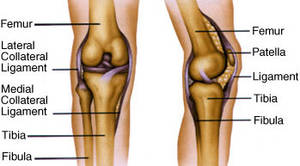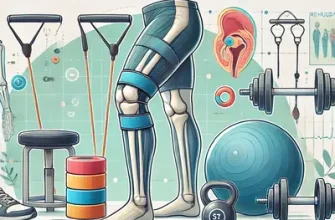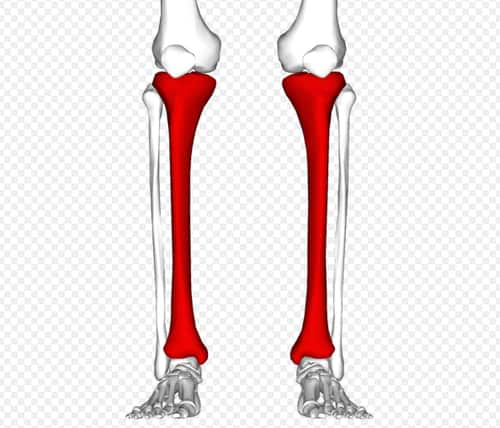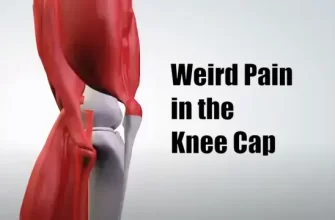When your knee feels like it needs to pop, it usually means something inside the joint isn’t moving quite right. It can feel a bit like a stuck door hinge that suddenly clicks back into place when it finally moves. This sensation often catches people off guard, but it’s usually your body’s way of signaling that something in the joint needs a little attention.
A knee that feels like it needs to pop can be surprisingly common, affecting people of all ages — from athletes to office workers. Studies suggest that mild joint catching or popping sensations occur in up to one-third of adults at some point, often due to tight muscles, small air bubbles in the joint fluid, or early cartilage wear. While most cases aren’t serious, recurring or painful episodes may point to conditions like meniscus irritation or patellar tracking issues.
After a workout, a long day on your feet, or even just sitting too long, that familiar pressure or click in the knee can return. When the joint feels tight or ready to “pop,” it’s worth understanding what’s actually happening — and when it might be time to give your knees a bit more care and attention.
Could It Be Joint Effusion?
Have you ever felt a pressure inside your knee, like it’s building up and needs to release? This could be related to joint effusion, also known as “water on the knee.” When fluid builds up within the knee joint, it can cause that distinct feeling of tightness and pressure. Effusion can occur due to an injury, such as a ligament sprain, or because of inflammation from arthritis. According to recent studies, over 30% of people over 40 experience joint effusion at least once in their lives, often without any major trauma involved (National Institutes of Health, 2023).
A Quick Tip for Relief
If joint effusion is the culprit, resting your knee and applying a cold compress for 20 minutes at a time may help reduce inflammation. Anti-inflammatory medications like ibuprofen are also commonly recommended, but remember, it’s always wise to check with a healthcare provider before self-medicating.
Is It a Meniscus Tear?
One of the more common reasons for the sensation that your knee needs to pop is a meniscus tear. The menisci are cartilage pads that cushion the knee joint, and they can tear due to sudden twisting motions or gradual degeneration. When there’s a tear, fragments of cartilage can get caught within the joint, leading to that classic feeling of needing to “pop” the knee.
In fact, meniscus tears are responsible for over 40% of knee-related visits to orthopedic specialists. These tears can often be managed with physical therapy and specific strengthening exercises. However, for severe cases, arthroscopic surgery might be necessary.
Did You Know?
Studies have shown that most meniscus tears in people over 50 are actually degenerative, meaning they occur slowly over time rather than suddenly. This means activities like squatting or even getting up from a chair can be risk factors for older adults (American Journal of Sports Medicine, 2022).
Could It Be a Tight Iliotibial (IT) Band?
Have you been running or cycling a lot lately? A tight iliotibial (IT) band might be behind that pop-seeking sensation in your knee. The IT band is a fibrous tissue that runs down the side of your thigh from the hip to the knee. When it gets tight, it can cause friction at the side of the knee, often leading to discomfort that feels like something needs to be adjusted or “popped.”
The Cost of Stretching
Did you know that foam rollers, often recommended for IT band relief, can range from $20 to $70 depending on quality and features? Spending a little extra on a good foam roller can make all the difference in keeping your IT band loose and reducing that feeling of tension in the knee.
Cartilage Wear and Tear: The Role of Osteoarthritis
If you’re over the age of 45 and have that constant feeling that your knee needs to pop, osteoarthritis might be a factor. Osteoarthritis is a condition where the cartilage that cushions your knee begins to deteriorate, leading to bone-on-bone contact. This degeneration can create a grinding sensation and an urge to pop the joint to alleviate discomfort.
Over 50 million adults in the U.S. suffer from osteoarthritis, and the knee is one of the most affected joints (Centers for Disease Control and Prevention, 2023). If this sounds familiar, low-impact exercises like swimming or cycling can help maintain knee flexibility and strength without further damaging the joint.
Could Gas Bubbles Be the Cause?
Sometimes, the cause is quite simple: gas bubbles. Just like when you pop your knuckles, gas bubbles can form in the synovial fluid of your knee joint. These bubbles, when they burst, create a popping sound, which might be why your knee feels like it needs a release.
There’s no harm in a knee popping occasionally, especially if there’s no pain involved. However, if the popping becomes painful or is accompanied by swelling, it’s time to consult a healthcare professional.
Understanding Patellar Tracking Disorder
Does your kneecap seem to “click” out of place sometimes? You might be dealing with patellar tracking disorder. This condition occurs when the kneecap doesn’t move properly within the groove at the end of the femur, which can lead to a sensation that your knee needs to pop or adjust. It’s particularly common in athletes, especially those involved in sports that require frequent changes in direction.
Common Costs
Many people with patellar tracking disorder turn to physical therapy, which can cost around $75-$150 per session. Some individuals also opt for knee braces, which range between $20 to $100, depending on the level of support required.
Self-Care and Medical Interventions
Home Remedies
If your knee feels like it needs to pop, there are some simple exercises that can help alleviate discomfort. Stretching the quadriceps and hamstrings can improve knee joint alignment, reducing that popping sensation. Gentle squats and lunges may also help improve strength and stability in the knee.
When to See a Doctor
If the sensation persists for more than a few weeks, or if it’s accompanied by pain, swelling, or instability, it’s time to seek medical advice. An MRI may be required to diagnose underlying issues like ligament tears or cartilage damage. Although MRIs can be expensive—typically costing between $500 and $3,000—they provide a clear image of what’s going on inside your knee.
Expert Advice From Our Editorial Team
The sensation of needing to pop your knee can stem from a range of causes, from simple gas bubbles to more complex conditions like osteoarthritis or meniscus tears. Our best advice is to listen to your body. If the popping isn’t accompanied by pain, it’s probably nothing serious. However, if you notice other symptoms, like swelling or limited mobility, it’s essential to take action sooner rather than later. Remember, early intervention can often prevent further complications and help you stay active and pain-free for years to come.
References
- National Institutes of Health (NIH) – Knee Joint Effusion Overview
https://www.ncbi.nlm.nih.gov/books/NBK532279/ - American Academy of Orthopaedic Surgeons (AAOS) – Meniscus Tears
https://orthoinfo.aaos.org/en/diseases–conditions/meniscus-tears/ - American Journal of Sports Medicine – Degenerative Meniscus Tears Research
https://journals.sagepub.com/home/ajs - Centers for Disease Control and Prevention (CDC) – Osteoarthritis Data & Statistics
https://www.cdc.gov/arthritis/basics/osteoarthritis.htm - Mayo Clinic – Patellar Tracking Disorder & Knee Mechanics
https://www.mayoclinic.org/symptoms/knee-pain/basics/causes/sym-20050792









